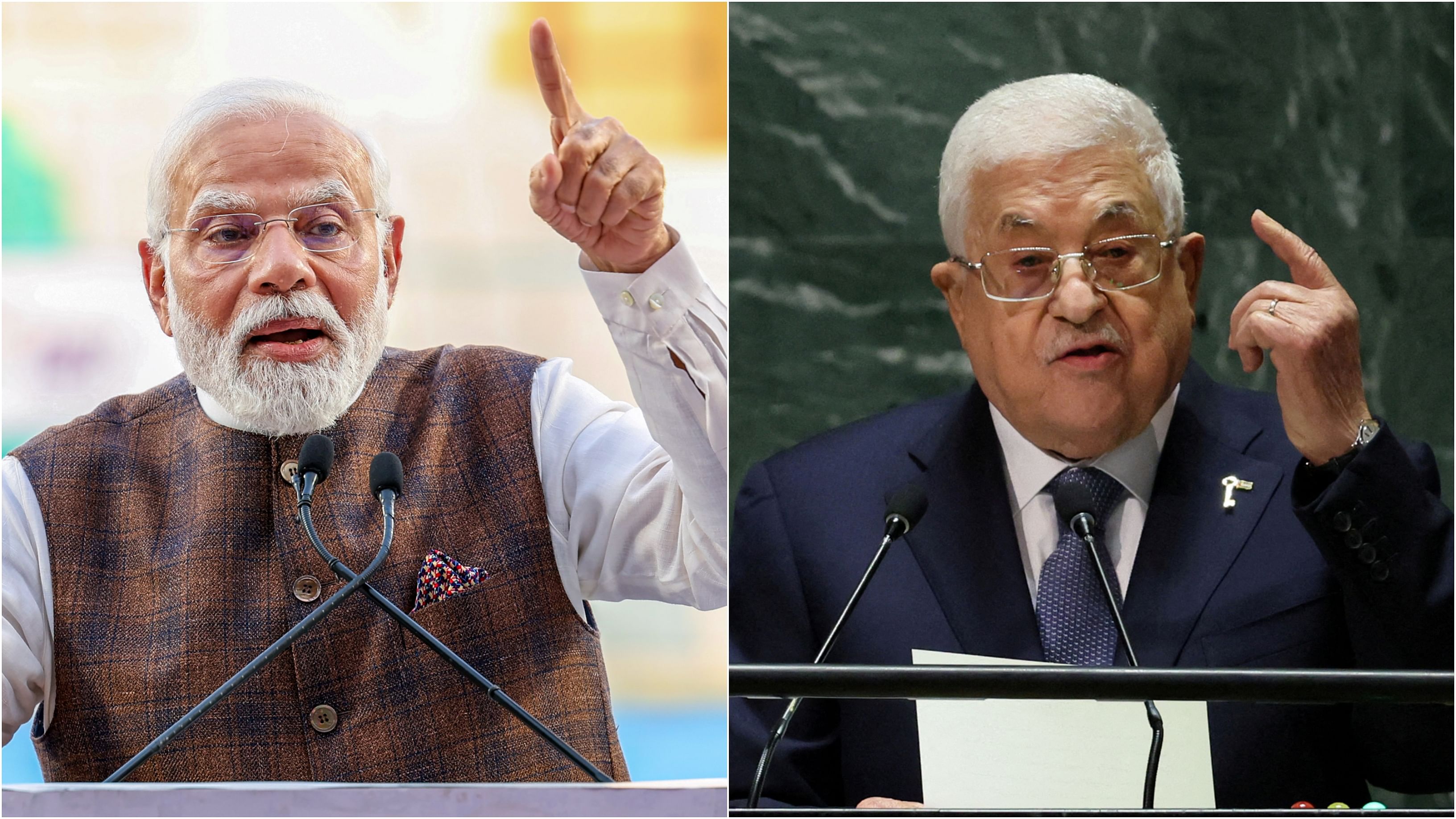
Prime Minister Narendra Modi (L) and Palestinian Authority President Mahmoud Abbas (R).
Credit: PTI, Reuters File Photos
New Delhi: With the Hamas-Israel conflict raging on, India on Thursday stressed strict observance of international humanitarian laws even as Prime Minister Narendra Modi called the President of the Palestinian Authority, Mahmoud Abbas, and conveyed condolences at the loss of civilian lives during the recent blast at a hospital in Gaza.
Modi called Abbas and conveyed New Delhi’s “deep concern” over “terrorism, violence and deteriorating security situation” in West Asia. He said that India would continue to send humanitarian assistance to the people of Palestine.
With both Hamas and Israel blaming each other for the blast in the hospital, New Delhi stressed strict observance of international humanitarian laws but avoided calling for a pause in the conflict between Hamas and Israel. It also avoided commenting on the failure of the United Nations Security Council to adopt a resolution moved by Russia calling for an immediate humanitarian ceasefire in the ongoing conflict – because although China voted for it, the other permanent members of the UNSC, France, the United Kingdom and the United States, blocked it.
“Shared our deep concern at the terrorism, violence and deteriorating security situation in the region. Reiterated India's long-standing principled position on the Israel-Palestine issue,” the prime minister posted on X after speaking to the president of the Palestinian Authority.
Modi called the president of the Palestinian Authority more than a week after speaking to Israeli Prime Minister Benjamin Netanyahu over the phone on October 10. He had earlier condemned the October 7 attacks launched by Hamas on Israel. “We stand in solidarity with Israel at this difficult hour,” he had posted on X.
New Delhi, however, later sought to strike a balance with Arindam Bagchi, the spokesperson of the Ministry of External Affairs (MEA), stating on October 12 that India had always advocated the resumption of direct negotiations towards establishing a sovereign, independent, and viable state of Palestine, living within secure and recognized borders side by side at peace with Israel.
“We have strongly condemned the horrific terrorist attack on Israel. The international community must stand together in combating terrorism in all its forms and manifestations, and there can be no equivocation on this,” Bagchi told journalists in New Delhi on Thursday. He was referring to the October 7 Hamas attacks against Israel. He reiterated India’s call for direct negotiation between Palestine and Israel to reach a two-state solution. “We have also expressed our concern at the civilian casualties and the humanitarian situation. We would urge the strict observance of international humanitarian law.”
Soon after the blast at Al Ahli Hospital in Gaza City on Tuesday, Hamas had blamed Israel for the incident. It had claimed that the airstrikes by the Israel Defence Forces on the hospital killed at least 500 people. Israel had denied involvement in the attack on the hospital in Gaza City. It had claimed that a rocket misfired by the Palestinian Islamic Jihad caused the blast.
“Civilian casualties in the ongoing conflict are a matter of serious and continuing concern. Those involved should be held responsible,” Modi had posted on X on Wednesday, carefully avoiding lending credence to the allegations of both Hamas and Israel.
The MEA spokesperson said that around 1200 Indians had come back to India in five flights from Tel Aviv under 'Operation Ajay' which India had launched to bring back home its citizens from the conflict zones of Israel and Palestine. New Delhi also facilitated the safe evacuation of 18 Nepali citizens from Israel.
